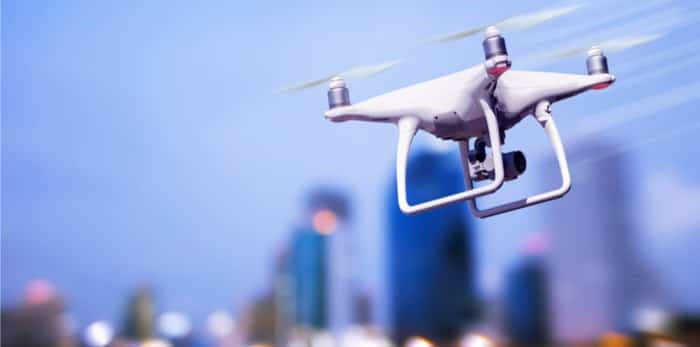 Drone/Shutterstock
Drone/Shutterstock
The Government of Canada unveiled a number of new regulations for remotely piloted aircraft systems, more commonly known as drones.
Minister of Transport, Honourable Marc Garneau, made the announcement on Wednesday, January 9, which includes a comprehensive list of everything from drone registration to who may fly one to what they may carry.
The new rules will come into effect on June 1, and apply to all drones between 250 grams and 25 kilograms that are operated within the drone pilot’s visual-line-of-sight, regardless of whether the drone is flown for fun, work or research. As such, drone pilots will need to have their Pilot Certificate and proof of registration readily available when flying their drone as of June 1, 2019.
“We’ve listened closely to feedback from Canadians and have updated our regulations to balance practicality and the safe use of drones. Drones are part of an important economic sector with significant potential to improve lives and connect communities across the country," explained Garneau.
"Our new regulations will create new opportunities for Canadians by establishing a safe and predictable regulatory environment where the industry can innovate and where recreational and non-recreational drone pilots can safely access Canadian airspace.”
Drone Regulations
The new regulations fall into two categories, basic and advanced, and are based on distance from bystanders and airspace rules.
Both categories have their own set of easy-to-follow rules that will require the drone pilot to:
- register and mark the drone with its registration number;
- pass an online exam and get a pilot certificate for basic or advanced operations;
- be a minimum age of 14 for basic and 16 for advanced operations, unless supervised by a person having proper certificates;
- stay below an altitude of 122 m (400 feet) above ground level; and
- stay away from air traffic.
The only pilots who must acquire a Special Flight Operations Certificate (SFOC) are those who need to fly a drone outside the rules for basic or advanced operations.
The government also highlights that people may face stiff fines of up to $25,000 and jail time if they:
- putting aircraft and people at risk
- flying without a drone pilot certificate
- flying unmarked or unregistered drones
In addition, the new rules dictate that consuming alcohol within 12 hours of being on a drone flight crew is strictly prohibited.
Transport Canada has developed an improved, user-friendly website with information on the new regulations and helpful tools for all drone pilots.


